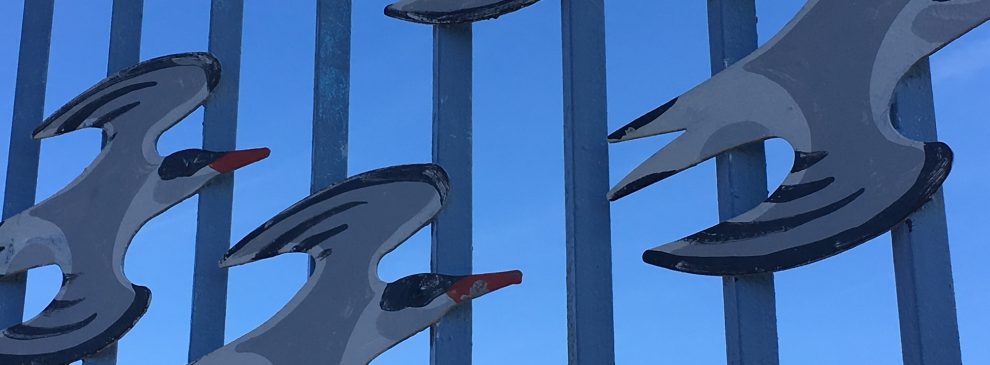Within These Walls: Prison education reform and the ethical prison library
Added on Friday, December 1st, 2017
.
In May 2016, the Ministry of Justice published Unlocking Potential: A review of education in prison. The review, led by Dame Sally Coates, aims to place education “at the heart of the prison system” as a pillar of effective rehabilitation. Whist recognising pockets of good practice, recommendations are presented as a more holistic ambition to embed and integrate education within and across the full prison regime. Combined objectives include basic skills development in formal and non-formal educational settings; vocational training and employability skills in partnership with employers; personal and social development including family and relationship-learning; provision of arts, music and sport activities; information, advice and guidance supporting prisoners to make informed future employment and career choices; each enhanced by ongoing ‘through the gate’ support. The ultimate aim is to reduce the ‘significant financial and social costs of reoffending’, estimated to be £9.5-13 billion per year.
Subsequent changes to the prison education system for adults in England define its purpose as facilitating the skills needed for prisoners to ‘unlock their potential, gain employment and become assets to their communities’, building social capital and improving prisoners’ wellbeing during time served and after release. Practical changes, which will become operational in 2018, include changes to commissioning and procurement processes, giving governors responsibility (and ultimate accountability) for the education offer in their prisons. Alongside empowering governors to make locally-responsive decisions, other key elements of the proposed reform include improved partnership working between prisons and relevant services; consistency across minimum prison system requirements; and indicators of system improvement including identification of best practice.
The Coates Review provides a pertinent policy context for the Instrumental Values study, funded by the Arts and Humanities Research Council 2017-19 and designed to explore ethical dimensions of collaborative practice between museum and library sectors and partner agencies, working in priority public policy areas. Despite scant reference to prison libraries in the Unlocking Potential report, subsequent policy directives define a specific role for the prison library, actively supporting ‘the governor’s learning strategy and agenda’, which should encourage ‘the use of libraries as places of calm and reflection, where study can be undertaken in a supportive environment without interruption’.
With its emphasis on rehabilitation, there is arguably an altruistic ethos underpinning current prison education reform. There are however a number of restrictive structural realties, and operational inconsistencies across the prison estate, which must be navigated on a daily basis to meet the practical objectives being set. As such, how can policy expectations be realistically fulfilled by prison library services and what are the implications for ethical practice in the sector?
Regulating the prison library
Statutory expectations and responsibilities of prison libraries are currently defined by the National Offender Management Service (NOMS), under Prison Service Instruction (PSI) 02/2015. The document ‘explains the processes for the provision of a library service in prison establishments to support prisoner resettlement, rehabilitation and purposeful activity’, emphasising provision that supports literacy and reading for pleasure. Mandatory actions for prison Governors include ensuring that prisoners’ statutory entitlements to library provision are met, including access to books and audio-visual materials when unable to physically visit the library.
Previous research and consultation exercises within the sector have reflected on the impact of other prison library reforms and policy interventions. The National Foundation for Educational Research conducted a review of the implementation of a new Prison Library Specification (as part of the Offender Learning and Skills Service) in 2006. The research highlights a number of challenges in implementing changes and meeting associated targets, linked to operating within the prison regime; how the library is viewed and valued within individual prisons; communication issues between library service providers (usually Public Library Authorities) and Offender Learning and Skills Units; and variability in prison circumstances. Other research findings include implications for professional identities, skills and training of prison library staff, and for the ethos of library services when required to meet specific (more formal) educational objectives and outcomes.
Writing on trends in UK prison libraries in 2011, Carole Bowe reflects on the extent of professional accountability that exists in prison libraries when working with ‘disaffected’ service user communities with diverse needs, situated in complex structural environments that are continually subject to legislative change. The article points to the work of the Prison Libraries Group (PLG), a special interest group of the Chartered Institute of Library and Information Professionals (CILIP), as a valuable support mechanism. The PLG itself consulted members in 2014 regarding conditions in the sector, in response to the introduction of New Ways of Working by NOMS. The report re-emphasises the challenges created by operational prison conditions in meeting formal targets, but offers some encouragement via the range of innovative creative, reading and literacy programmes delivered in partnership with external organisations, including The Reading Agency and the Shannon Trust.
Prison library networks, vision and values
In the face of such operational adversity, how do prison library staff uphold the ethical values, service ethos and professional integrity expected of ‘conventional’ library services? The Instrumental Values study coincides with a major review of CILIP’s ethical framework and code of practice. During a workshop held as part of the review in London (October 2017), participants acknowledged difficulties in adhering to prescribed codes across different types of library service, with the subjectivities of the prison environment in particular necessitating more nuanced forms of ethical practice that subscribe to very specific regulations and requirements.
As the representative professional body for the sector, CILIP proactively advocates and promotes the value of prison libraries, with examples of proactive prison leadership and beacon library services. These include HMP Norwich library, winners of the CILIP Libraries Change Lives award in 2017, for its innovative Cognitive Stimulation Therapy Group for prisoners with dementia. Similarly, the PLG has its own annual award, most recently given to Staffordshire Libraries for the Books Unlocked project in collaboration with the National Literacy Trust. These accolades furthermore reflect the significance of collaborative networks to prison libraries, and the ways in which a shared rehabilitative mission with partner agencies can enhance library services. At the same time, extended partnership working creates an extra layer of ethical complexity, as discussed in my first blog on the Instrumental Values project.
I’m continuing to address these big questions through the research, working with a number of ‘case study’ prison library services and museums working in health care settings. Speaking in June 2017, CILIP Chief Executive Nick Poole described prison libraries as the “soul of the prison – a place of respite and humanity and learning in the broadest sense”, achieving remarkable things sometimes in spite of the barriers and restrictions placed upon them. Where there is an ethical, collaborative will, there’s a way?









